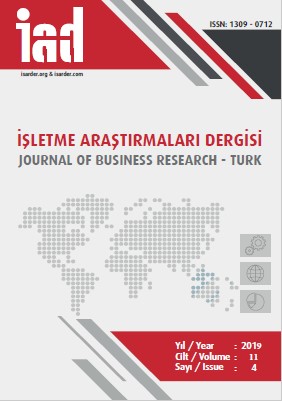Düşük Maliyet Taşımacılık İş Modelini Benimseyen Havayolu Şirketlerinin Yan Gelir Uygulamalarının Finansal Performansları Üzerindeki Etkileri: Türk Sivil Havacılık Sektöründe Bir Uygulama
Ancillary Revenue's Effect on Low-Cost Carrier Adopted Airline Company's Financial Performance: An Application in Turkish Civil Aviation Sector
Author(s): Murat AtikSubject(s): Business Economy / Management, Accounting - Business Administration, Transport / Logistics
Published by: Orhan Sağçolak
Keywords: Ancillary Revenue; Air Freight; Financial Analysis;
Summary/Abstract: Purpose – In the aviation sector, the concept of ancillary income is defined as the revenue generated as a part of the travel experience through sales to passengers directly or indirectly before, during or after travel. The aim of this study is to reveal the degree of impact of the low income business model on the financial performance of side income applications. Design/methodology/approach – The OLS method has been chosen to demonstrate the impact of the low-cost business model on the financial performance of the subsidiary income applications of the airline. Only two of the airline companies in Turkey (Turkish Airlines, Pegasus) are open to the public, and only one of the those two airline companies (Pegasus) adopts the low-cost business model, which limits the number of methods that can be selected just because it reduces the data sets. Findings – As a result, it has been found that the increase in occupancy rate positively affects the EBITDAR margin and the increase in CASK, which represents the cost per km, has a negative impact on the EBITDAR margin.
Journal: İşletme Araştırmaları Dergisi
- Issue Year: 11/2019
- Issue No: 4
- Page Range: 2622-2635
- Page Count: 14
- Language: Turkish

